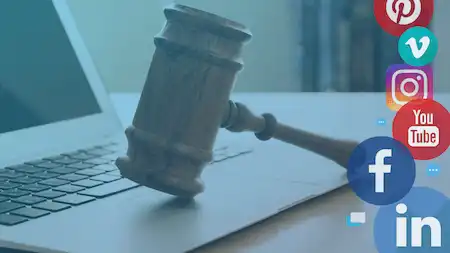Public Records Laws and Social Media Retention in
Massachusetts
Massachusetts Public Records Law and Social Media
The Massachusetts Public Records Law (G.L.c.4, § 7(26)) requires that public records include all writings made by public agencies regardless of physical form, including electronic records. An update that took effect on Jan 1, 2017 now requires records officers to “permit inspection or furnish a copy of a requested public record within 10 business days following receipt of the request.”
View Massachusetts law text
Massachusetts Public Records Law
“Public records” shall mean all books, papers, maps, photographs, recorded tapes, financial statements, statistical tabulations, or other documentary materials or data, regardless of physical form or characteristics, made or received by any officer or employee of any agency, executive office, department, board, commission, bureau, division or authority of the Commonwealth, or any political subdivision thereof, or of any authority established by the general court to serve a public purpose.
Social Media Records Guidelines from the Secretary of the Commonwealth
The Secretary of the Commonwealth addresses social media records in Massachusetts in the Electronic Records Guidelines. These guidelines explicitly state that social media content is subject to electronic records requirements and cautions public entities that the content exists on servers that are outside of their control. This means entities can not rely on social media service providers to retain records in a manner that satisfies the Massachusetts Public Records Law.
View the Electronic Records Guidance text
Social Media Records
Public entities that use social media should be aware that social media sites contain communications sent to or received by state employees that are subject the same electronic records requirements discussed throughout these Guidelines.
Note: Public entities that use social media should be aware that most social media sites are hosted by third party providers. Consequently, the physical hardware and software that enable the social media site are located at, and under the control of, an entity other than the Commonwealth. Therefore, public entities have limited control over the functionality or business practices offered by such sites and the legal terms to which they are subject. These terms may impact adequacy of accessibility for people with disabilities, documentation, recordkeeping requirements, records management responsibilities, and records disposition. Public entities should be aware that the social media provider is unlikely to change features and functionality that do not meet all of the public entity’s recordkeeping and records management obligations.
Therefore, public entities need to ensure procedures are implemented to allow for:
(7) Review of third party social media service provider’s terms of service for its records retention practices.
Note: While third-party social media providers will most likely save the public entity’s content for some period of time, they generally will not save it indefinitely.
(8) Retention of a copy of the social media content in accordance with the Statewide Records Retention Schedule.
Note: To the extent that the social media provider’s policies are inconsistent with the Statewide Records Retention Schedule, the public entity is obligated to take affirmative steps to retain copies of social media posts.
More general guidelines regarding electronic records, including answers to frequently asked questions, can be found in the Guide to the Massachusetts Public Records Law.
View the Guide text
Guide to the Public Records Law
Does the Public Records Law apply to email and other computer records?
The Public Records Law applies to all government records generated, received or maintained electronically, including computer records, electronic mail, video and audiotapes.
When drafting the Public Records Law the legislature did not envision the impact computers would have on the government’s ability to collect, store, compile and disseminate information. The legal principles embodied in the Public Records Law, however, may be readily transposed into legal principles governing access to information maintained in an automated system. The statutory definition of “public records” does not distinguish between paper records and electronically stored information. Rather, the law provides that all information made or received by a public entity, regardless of the manner in which it exists, constitutes “public records.”
Massachusetts Social Media Records Management in Practice
The State of Massachusetts is committed to transparency in government. Part of that commitment includes archiving social media records, and informing citizens that even their replies and comments may be retained as public government records. The state’s public-facing social media policy clearly informs users that content shared on these sites and comments received from citizens constitute public records under the law.
View Massachusetts Social Media Policy
Massachusetts Social Media Policy
Mass.gov® Social Media Policy
Please note that the Records Retention Law of the Commonwealth requires the Mass.gov team to preserve records created or received by a state employee. Under this retention requirement, comments posted or messages received via an official state agency page on a third-party website (such as an official agency profile on a social network) will be treated as state governmental records and may be permanently archived.
Social Media Record Retention Legal News in Massachusetts
Read about Massachusetts cases and precedents involving social media and public record retention.

A Massachusetts municipal law attorney discussed the importance of managing social media as a public record in Massachusetts.
Attorney Richard T. Holland specializes in municipal law and wrote an article on the importance of managing social media as a public record. Holland’s article points to the Massachusetts Secretary of State’s Electronic Records Management Guidelines, which state that social media communications are subject to the same public records requirements as other electronic content. The author also says, “For municipalities that use social media, capturing and preserving social media content must be part of any municipal electronic records management plan.”